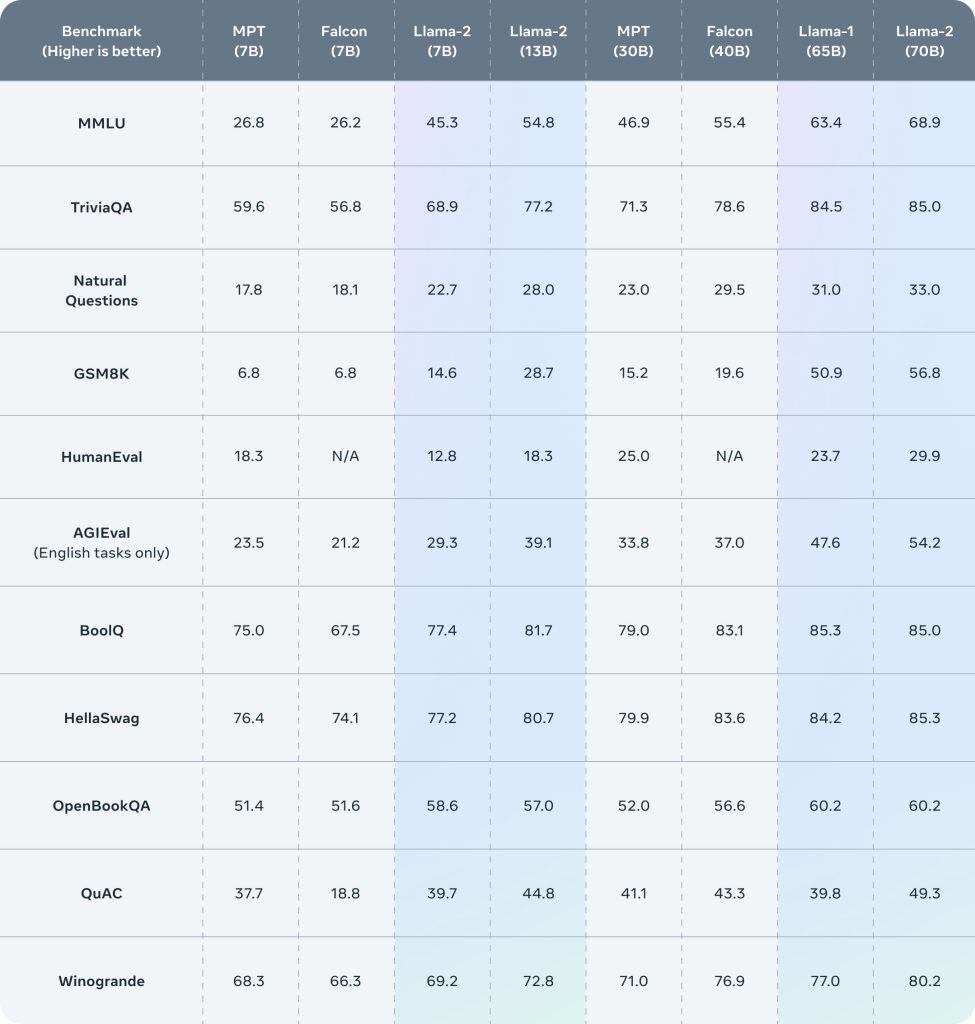
Meta has introduced Llama 2, an open-source family of AI language models which comes with a license allowing integration into commercial products.
The Llama 2 models range in size from 7-70 billion parameters, making them a formidable force in the AI landscape.
According to Meta’s claims, these models “outperform open source chat models on most benchmarks we tested.”

The release of Llama 2 marks a turning point in the LLM (large language model) market and has already caught the attention of industry experts and enthusiasts alike.
The new language models offered by Llama 2 come in two variants – pretrained and fine-tuned:
- The pretrained models are trained on a whopping two trillion tokens and have a context window of 4,096 tokens, enabling them to process vast amounts of content at once.
- The fine-tuned models, designed for chat applications like ChatGPT, have been trained on “over one million human annotations,” further enhancing their language processing capabilities.
While Llama 2’s performance may not yet rival OpenAI’s GPT-4, it shows remarkable promise for an open-source model.
The Llama 2 journey started with its predecessor, LLaMA, which Meta released as open source with a non-commercial license in February.
However, someone leaked LLaMA’s weights to torrent sites, leading to a surge in its usage within the AI community. This laid the foundation for a fast-growing underground LLM development scene.
Open-source AI models like Llama 2 come with their share of advantages and concerns.
On the positive side, they encourage transparency in terms of training data, foster economic competition, promote free speech, and democratise access to AI. However, critics point out potential risks, such as misuse in synthetic biology, spam generation, or disinformation.
To address such concerns, Meta released a statement in support of its open innovation approach, emphasising that responsible and open innovation encourages transparency and trust in AI technologies.
Despite the benefits of open-source models, some critics remain sceptical, especially regarding the lack of transparency in the training data used for LLMs. While Meta claims to have made efforts to remove data containing personal information, the specific sources of training data remain undisclosed, raising concerns about privacy and ethical considerations.
With the combination of open-source development and commercial licensing, Llama 2 promises to bring exciting advancements and opportunities to the AI community while simultaneously navigating the challenges of data privacy and responsible usage.
(Photo by Joakim Honkasalo on Unsplash)
See also: Anthropic launches ChatGPT rival Claude 2

Want to learn more about AI and big data from industry leaders? Check out AI & Big Data Expo taking place in Amsterdam, California, and London. The event is co-located with Digital Transformation Week.
Explore other upcoming enterprise technology events and webinars powered by TechForge here.






